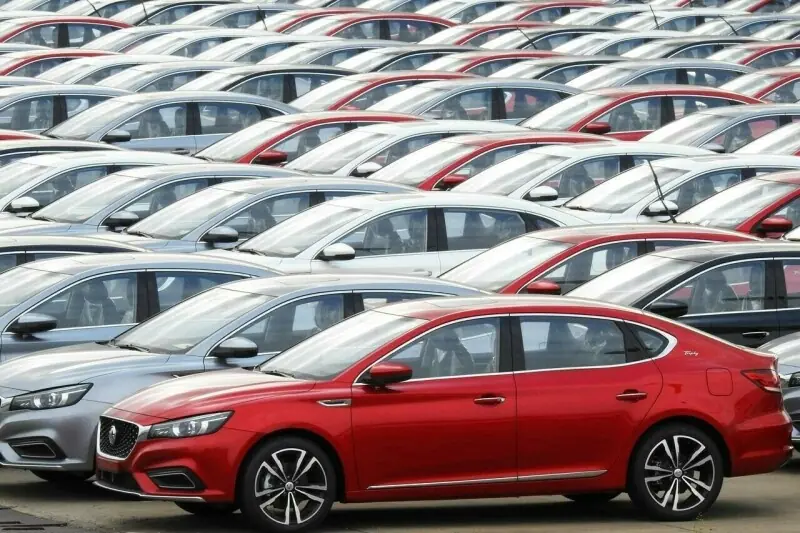KARACHI: Stricter regulations are needed around the import of used cars, which is hurting the local auto sector, industry sources say. They also believe a cascading tariff structure – where import duties increase with the degree of processing of a product – should be codified into law as it helps the country save $1.25 billion per annum by substituting imports with domestic production.
Talking to Business Recorder, Shehryar Qadir, Senior Vice Chairman of Pakistan Association of Automotive Parts & Accessories Manufacturers (PAAPAM), called for placing a permanent ban on commercial used-car imports.
He also believes Pakistan should build labs that are compliant with UNECE WP.29 – a United Nations body which brings countries together to create global safety and environmental standards for vehicles.
He supports the idea of linking export incentives to performance, mandating the localization of EV/HEV [electric vehicles/hybrid electric vehicles], requiring importers to provide after-sales care service, and delivering “tax-neutralization through volumes.”
He believes there are the conditions under which Pakistan’s proven vendor base can move from an infant industry to becoming global exporters, similar to its regional peers.
Without long-term predictable policy and a coherent tariff architecture that rewards local value-addition, Pakistan will slide back into import dependence, he said.
Commenting on the import of used vehicless which discourages local industry, Qadir said: “it is a real travesty that the government feels that the import of used vehicles is in the consumer’s benefit and would lead to lower domestic prices and contribute towards increasing exports.“
“Had this been the case, the local market in Pakistan would not have been standing today (150,000 vehicle mark) exactly where it was twenty years ago, as over the past two decades the government has regularly allowed used vehicle imports.”
“It is rather ironic that while the government tout’s industrialization and employment, its own policies have subsidized importers and undermined domestic manufacturers who invest in plants, technology, and people.”
Used cars’ import: Auto industry rallies against govt plan
He said no serious automotive manufacturing nation tolerates large-scale used car imports. From Thailand to Vietnam to India, every successful auto economy has treated second-hand vehicle inflows as an existential threat to domestic industrialization.
Different rules
He added that used vehicles are currently imported into Pakistan without any checks and balances. While an age limit is imposed on these vehicles, there is no mileage cap.
While technical regulations and standards are in place and implemented on local manufacturers, none of these standards are applied on used imported vehicles.
This leaves key aspects such as vehicle safety and environmental compatibility unchecked. Consumers are frequently faced with fraud and compromised quality as inferior vehicles with prior accident history and weakened rusty frames which are not structurally sound are imported and then repaired in local mechanic shops before being sold to consumers.
Customs clears over 4,400 used cars in July
Further to this, the current ‘gift and baggage’ scheme (a customs provision that allows individuals to bring goods into a country without going through normal commercial import channels) through which these vehicles are being imported is being severely misused and has become the epicentre of illegal activity whereby passports of individuals are being purchased by commercial importers and funds being transferred abroad via illicit unofficial channels. This puts a serious question mark on the financial credibility of the country.
Local auto parts sector
When it comes to localization efforts, he said “the auto sector’s localization effort currently substitutes roughly $1.25 billion in imports every year.”
He said Pakistan’s auto parts industry has demonstrated that cost competitiveness can be achieved even without economies of scale, an outcome rarely seen in the global automotive landscape.
Used cars’ import to destroy local industry: PAAPAM
Over the past decades, domestic vendors have steadily localized hundreds of critical components, upgraded their manufacturing capabilities, and secured validation from leading Japanese, Korean, and European original equipment manufacturers. This record is proof of resilience under challenging conditions and evidence of latent capacity for greater industrial contribution.
It is now important to maintain the policy architecture that enabled this localization in the first place. Predictable tariff structures, raw material facilitation and alignment of energy costs with regional benchmarks are prerequisites for unlocking the next phase of growth. A stable policy environment will allow vendors to pursue scale efficiencies, diversify product offerings and achieve the certifications required to penetrate global value chains.
The success of the auto parts industry is more than a domestic achievement. It represents Pakistan’s best chance at leveraging automotive manufacturing for industrial growth, technology transfer and regional integration.


